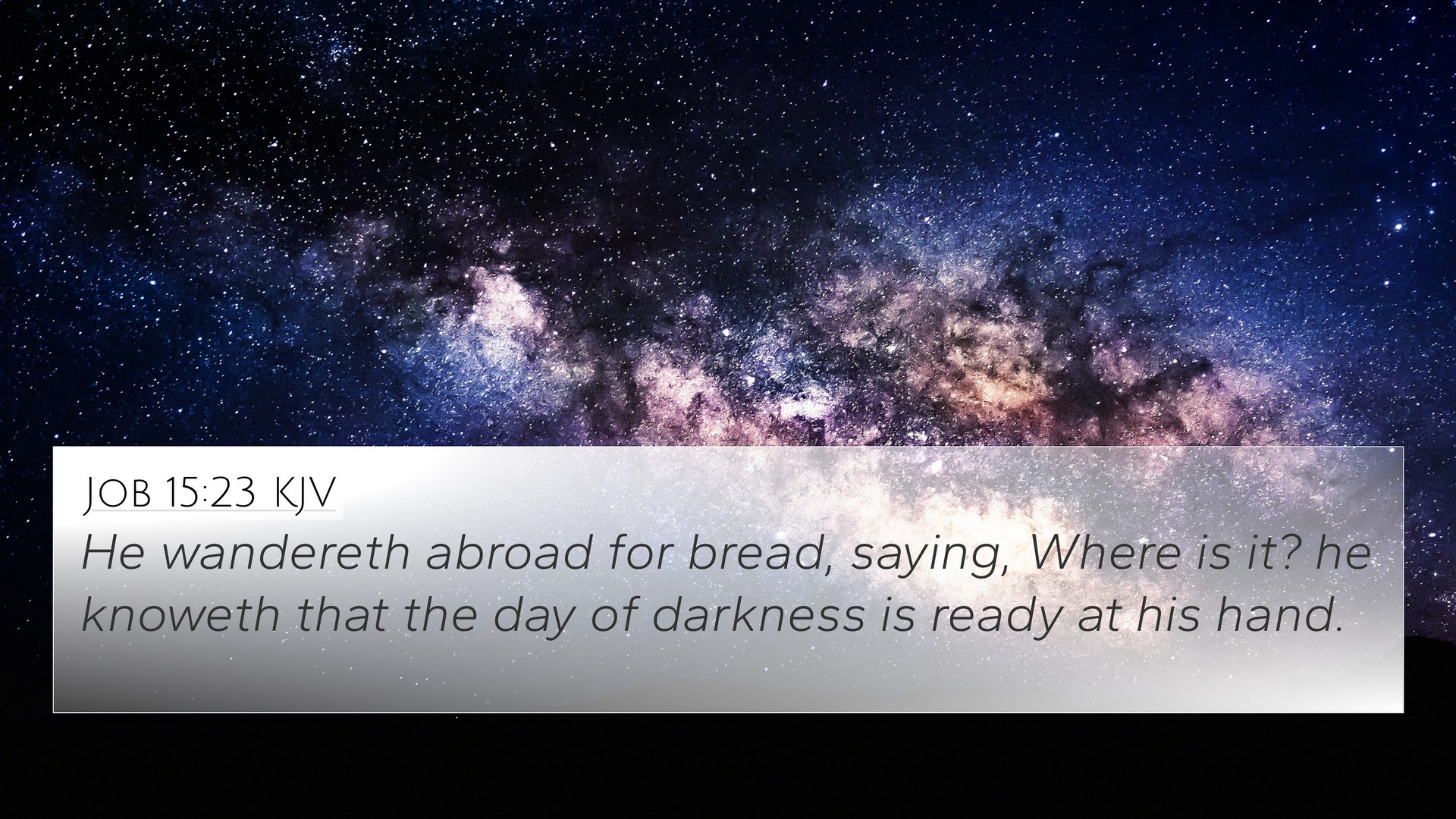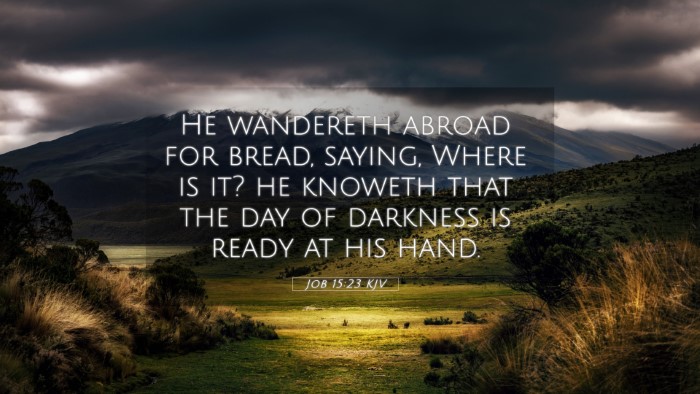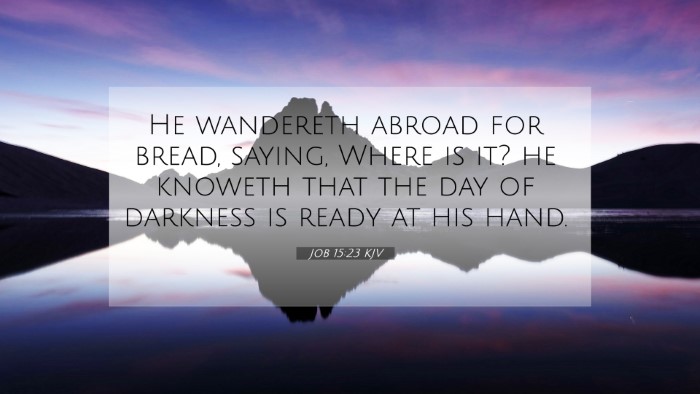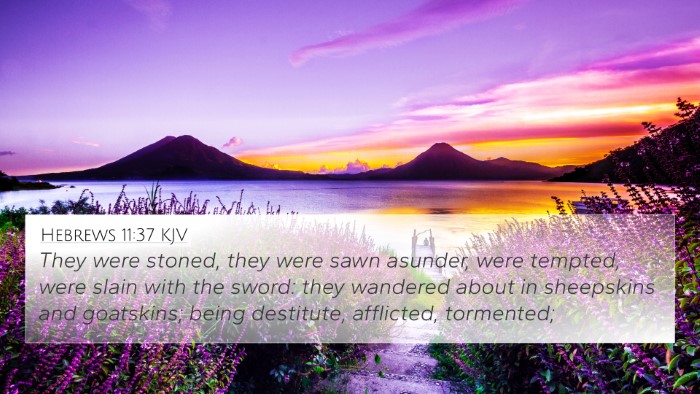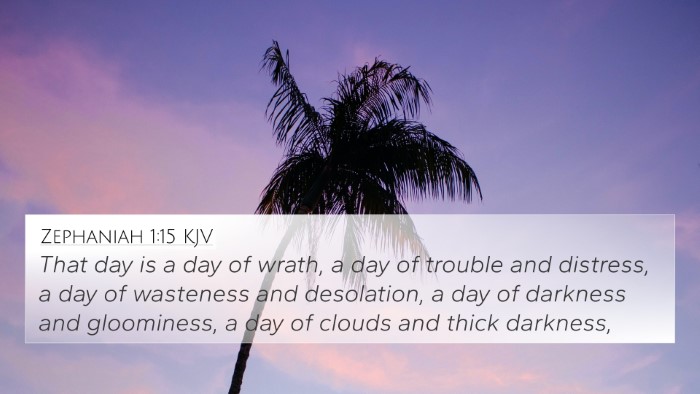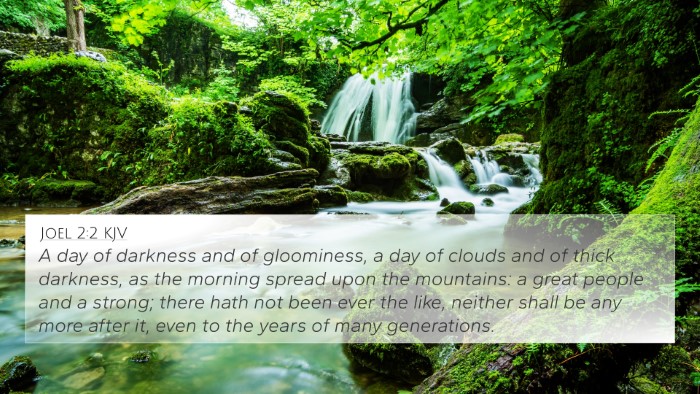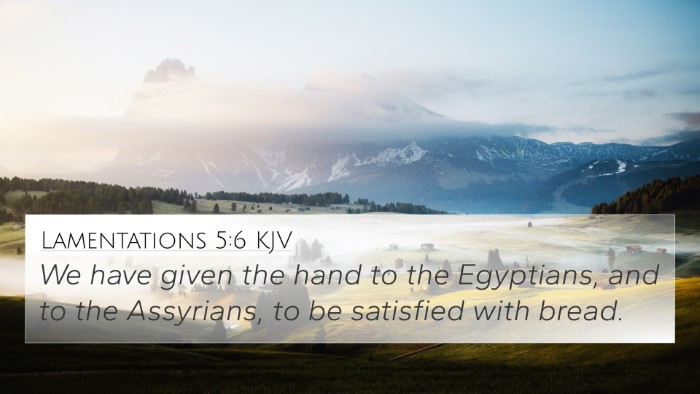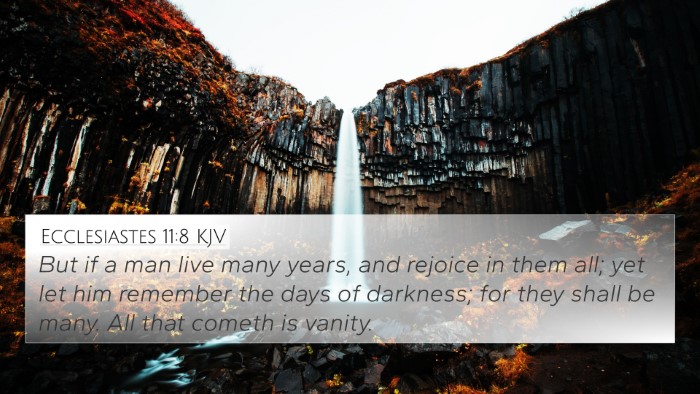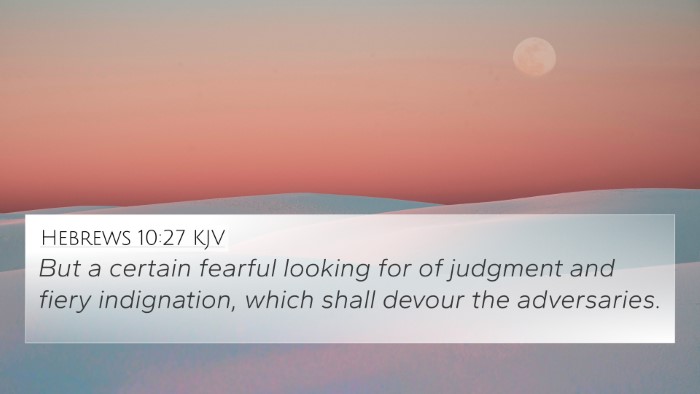Bible Verse Meaning: Job 15:23
Job 15:23 states, "He wandereth abroad for bread, saying, Where is it? he knoweth that the day of darkness is ready at his hand." This verse is part of Eliphaz's speech where he speaks to Job, highlighting the futility of Job's situation and the desperate condition of humanity under God's judgment.
Overview of Job 15:23
This verse reflects the anguish and despair that can come from suffering. Eliphaz illustrates the state of a man who is spiritually lost, hunted by the fear of his impending doom. The imagery of wandering for bread symbolizes both physical and spiritual sustenance, emphasizing a deeper longing for meaning in difficult times.
Commentary Insights
- Matthew Henry: Henry describes this verse as an illustration of the hopeless search for sustenance which mirrors the futile search for comfort amidst judgment. He emphasizes the depression that can envelop a suffering soul, indicating that without God, one feels abandoned and lost.
- Albert Barnes: Barnes notes that the phrase "day of darkness" signifies impending judgment and destruction. He underscores the idea that those who turn away from divine truth and live under sin ultimately find themselves in a state of anguish, deprived of both bread and the light of hope.
- Adam Clarke: Clarke provides further insights into the metaphorical language used in this passage. He suggests that “wandering for bread” represents those who are spiritually starving, lost in the world and disconnected from God's provision. Clarke emphasizes the need for spiritual nourishment and reliance on God to avoid such despair.
Related Bible Cross-References
- Psalms 37:25: "I have been young, and now am old; yet have I not seen the righteous forsaken, nor his seed begging bread."
- Proverbs 13:25: "The righteous eateth to the satisfying of his soul: but the belly of the wicked shall want."
- Job 30:3: "For want and famine they were solitary; fleeing into the wilderness in former time desolate and waste."
- Lamentations 3:19-20: "Remembering mine affliction and my misery, the wormwood and the gall. My soul hath them still in remembrance, and is humbled in me."
- Isaiah 59:9: "Therefore is judgment far from us, neither doth justice overtake us: we wait for light, but behold obscurity; for brightness, but we walk in darkness."
- Matthew 5:6: "Blessed are they which do hunger and thirst after righteousness: for they shall be filled."
- John 6:35: "And Jesus said unto them, I am the bread of life: he that cometh to me shall never hunger; and he that believeth on me shall never thirst."
Thematic Connections and Analysis
The theme of spiritual desperation and the search for sustenance recurs throughout scripture. Job 15:23 is reflective of broader biblical themes connecting suffering and the quest for spiritual answers. Understanding the cross-references provides insight into how different parts of scripture interplay with one another, illustrating the timeless struggles of humanity and God’s providence.
Exploration of Comparative Bible Verse Analysis
In approaching verses like Job 15:23 through comparative analysis, one can see a profound dialogue between the Old and New Testaments. The themes of spiritual neediness and the search for provision echo throughout various scriptures, linking the profound questions of Job with the assertions of Jesus about spiritual fulfillment in the New Testament.
Tools for Bible Cross-Referencing
Utilizing a Bible concordance or a Bible cross-reference guide can significantly enhance one’s study of verses like Job 15:23. By exploring these connections, one can gain deeper insights and identify thematic patterns that reinforce these critical spiritual truths.
Conclusion
Job 15:23 offers a rich landscape for understanding the human condition, thirsting for both literal and spiritual nourishment amidst trials. Through careful examination and cross-referencing with other biblical texts, readers can discover layers of meaning that speak to their own experiences of despair and hope.
Encouragement for Further Study
For those looking to deepen their understanding of biblical suffering and divine provision, embarking on a journey through cross-referencing Bible study methods may unveil profound connections that enhance one’s faith and understanding of God’s will.
